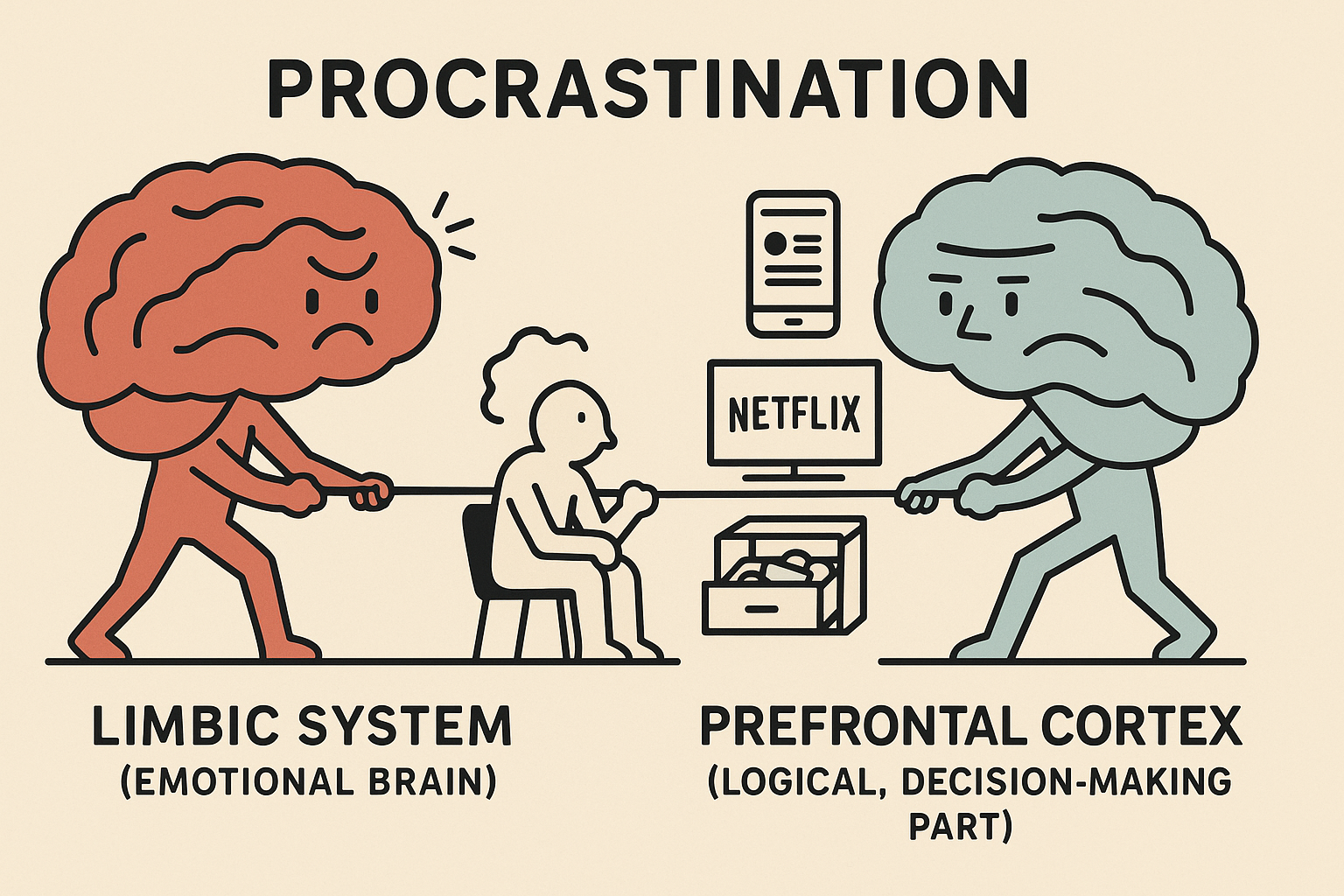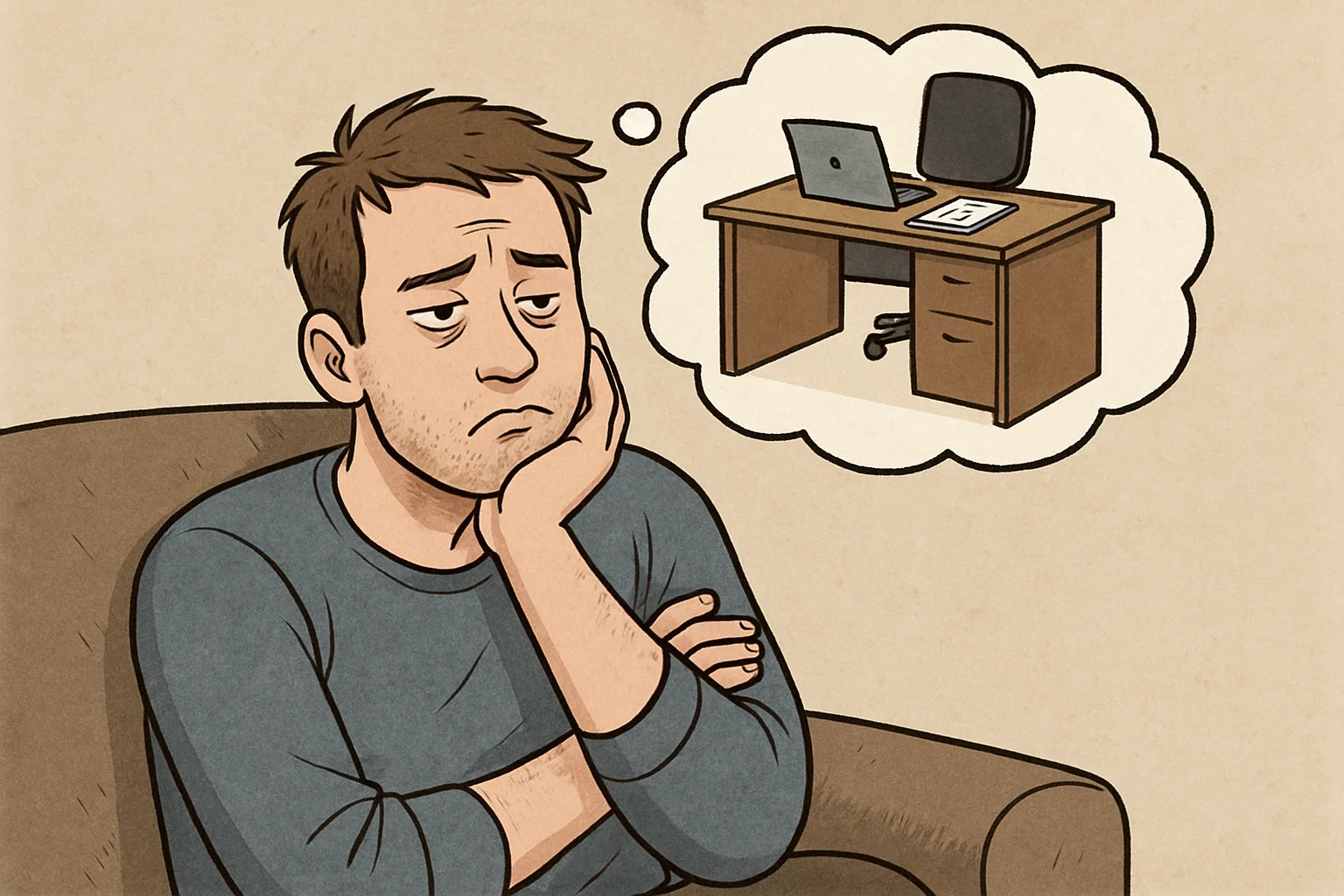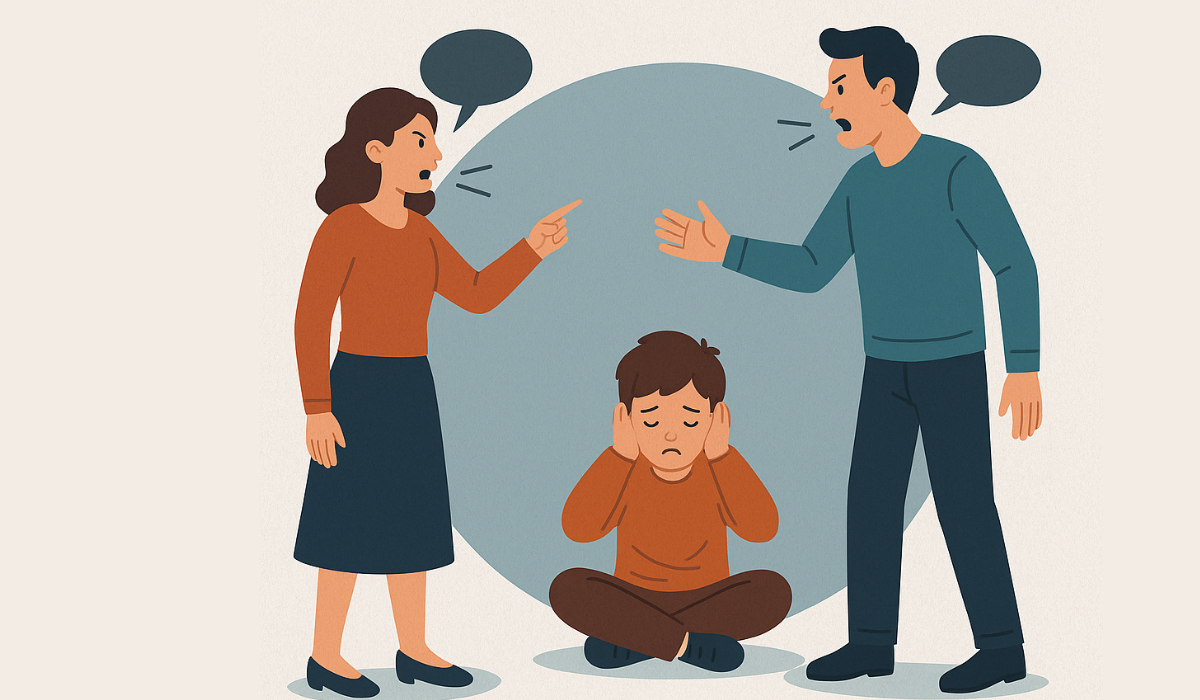We have all been there: staring at the to-do list, feeling overwhelmed, promising ourselves we’ll “start tomorrow.” Finally, when tomorrow comes, we still feel stuck. Whether it is responding to emails, starting a workout, finishing school work or medical school applications or launching that business idea, procrastination can feel like quicksand that is draining our energy, confidence, and time.
Let’s get one thing clear: procrastination isn’t about laziness. It’s about avoidance and more often than not, it’s driven by anxiety, perfectionism, or fear of failure. Understanding the “why” behind procrastination is the first step toward shifting from stuck to unstoppable.
As a therapist and coach with over 25 years of experience, I have helped countless clients and worked through my own moments of avoidance. If you are ready to stop delaying your goals and start showing up for yourself with purpose, keep reading.
What Is Procrastination, Really?
Procrastination is the act of delaying or postponing tasks, often irrationally, even when we know that doing so may lead to negative consequences. While everyone procrastinates occasionally, chronic procrastination can interfere with your personal and professional life, adding unnecessary stress and eroding your self-trust.
It’s Not a Time Management Problem
Many people assume procrastination is simply poor time management. Research shows it is more emotional than that. When we procrastinate, we are avoiding uncomfortable feelings: fear, boredom, frustration, overwhelm, or self-doubt.
This is why people who know exactly what they need to do still can’t bring themselves to do it. It’s not about the task, it is actually about how the task makes us feel.
The Psychology Behind Procrastination: A Brain-Based Perspective
From a neuroscience lens, procrastination is the result of a tug-of-war between the limbic system (our emotional brain) and the prefrontal cortex (the logical, decision-making part). When the emotional brain perceives a task as stressful or threatening, it overrides our rational thinking and seeks immediate relief such as scrolling social media, binge-watching Netflix, or cleaning out a junk drawer instead of working on that report.

Procrastination is the brain’s way of self-soothing in the short term. It feels good in the moment but costs us in the long run.
How Anxiety Fuels Procrastination
Anxiety is one of the biggest drivers of procrastination. Here’s how:
- Perfectionism anxiety: “If I can’t do it perfectly, why start?”
- Fear of failure: “What if I try and I’m not good enough?”
- Fear of judgment: “What will others think of me if I mess up?”
- Overwhelm paralysis: “There’s so much to do, I don’t even know where to start.”
Anxiety activates the stress response in the body. Your heart races, thoughts speed up, and your brain looks for a way out. Procrastination becomes the coping mechanism to avoid discomfort.
Here is something important to know about procrastination: Avoiding the task doesn’t reduce the anxiety but actually compounds it. What begins as a moment of relief ends in guilt, shame, and even more stress.
Signs You are Procrastinating (Even If You Don’t Realize It)
Not all procrastination looks like sitting on the couch doing nothing. Sometimes it wears a productivity mask.
- Over-researching instead of starting
- Rewriting your to-do list 5 times
- Decluttering your desk “to get ready”
- Waiting until “the timing feels right”
- Telling yourself you work better under pressure
If you are busy but not moving forward with your goals, chances are, you are in procrastination mode.
The Cost of Procrastination
Over time, procrastination creates a domino effect:
- Increased anxiety and stress
- Missed deadlines and opportunities
- Damaged self-confidence
- Strained relationships
- Lack of follow-through on your goals
It also sends a powerful message to your subconscious: I can’t trust myself to show up. And that belief can be paralyzing.
You can retrain your brain! Just like building muscle in the gym, you can build the habits and mindset needed to take action, even when you don’t feel like it.
7 Powerful Strategies to Overcome Procrastination
1. Name It to Tame It
The first step is awareness. When you notice yourself procrastinating, pause and name the emotion behind it.
Try this: “I’m putting this off because I’m afraid I’ll fail.” Or “I feel overwhelmed, so I’m avoiding it.”
Naming the emotion calms the nervous system and shifts you from reactivity to intentionality. I often give the example to my clients to think of the emotion/feeling as knocking on the door. Invite that emotion, such as fear or anxiety, to come in and have a seat, acknowledge and accept, not judging that emotion, then do some type of physical movement (wall squat, 10 jumping jacks, or even a brief walk outdoors) to transition out of it.
2. Shrink the Task
Procrastination often happens because the task feels too big or vague.
Instead of: “Write the presentation,” try: “Open my laptop and write the title slide.”
Start with what I call a ridiculously small step. It lowers the resistance and builds momentum. Starting small usually is the thing you need to do to help put things into perspective and make that task more manageable.
3. Use the 5-Minute Rule
Commit to just 5 minutes of focused work. That’s it! Most of the time, starting is the hardest part. Once you are in motion, you are most likely to keep going.
This technique works because it bypasses your brain’s alarm system. Five minutes doesn’t feel threatening but it gets you unstuck.
4. Create an Anti-Procrastination Environment
Your environment cues your behavior. Set yourself up for success:
- Put your phone in another room.
- Use website blockers like Freedom or Cold Turkey.
- Have a clear, clutter-free workspace.
- Play instrumental music to support focus.
Make the desired behavior easier and the distractions harder to access.
5. Embrace “B+ Work”
Perfectionism is one of procrastination’s best friends. High achievers often delay tasks because they want them done perfectly which creates paralysis.
Here’s the reframe: B+ work that gets done is better than A+ work that doesn’t exist. Progress beats perfection every single time.
Remember the famous Voltaire quote “Perfectionism is the enemy of good.” I cannot recall how many times I have used this quote most recently in my life as I started to do something, keep putting it off until I think it is “perfect”. Now I do the task I need and am training myself to stop overthinking things. It’s a work in progress always!
6. Set a Time, Not a Task
Instead of telling yourself “I have to finish this,” try “I’ll work on this from 10 to 10:30.”
This strategy (known as timeboxing) puts a boundary around your task and keeps your brain from feeling trapped in an endless to-do list.
7. Practice Self-Compassion
Beating yourself up for procrastinating will only trigger more anxiety, which leads to more avoidance.
Speak to yourself like you would a client or a close friend. “I’m doing the best I can. I’m learning a new way. I’m showing up today.”
Self-kindness fuels motivation far more effectively than criticism.
The Mindset Shift: Procrastination as a Pattern, Not a Personality
If you’ve struggled with procrastination, it doesn’t mean you’re broken, lazy, or unmotivated. It means your brain is trying to keep you safe, just in a way that no longer serves you.
When you shift your self-talk from “I’m a procrastinator” to “I’m noticing a habit of procrastinating,” you create space for change.
Remember: habits aren’t who you are and what you do. The things you do, you can change.
How I Support Clients with Procrastination
In my private practice and coaching programs, I guide high-achievers, creatives, and purpose-driven women through procrastination blocks using evidence-based techniques like:
- Cognitive behavioral therapy (CBT) to challenge unhelpful thoughts
- Habit stacking to build consistent routines
- Accountability systems to stay on track
- Mindset coaching to rewire limiting beliefs
My philosophy? Train your brain, transform your life. Just like strengthening a muscle, overcoming procrastination takes consistent reps. But with the right tools, support, and mindset, you can become the version of yourself who follows through, shows up, and gets things done.
Final Thoughts: It’s Not About Perfect Discipline: It’s About Daily Decisions
Procrastination isn’t a character flaw. It’s a brain pattern you can rewire. Each time you choose action over avoidance, you teach your brain that you’re capable. You build evidence. You strengthen trust in yourself.
You don’t need to do everything today. You just need to do the next right thing.
If no one has told you this yet, I want you to know that you are not behind. You’re not a failure!
Let this be your sign: start now, not later.
Ready to Break Free from Procrastination? Let’s Do This Together
If you are tired of getting in your own way and want support to break through procrastination, rewire your mindset, and create habits that stick, I’d love to help. Visit crystalperdue.com to book a session or learn more about my coaching programs.
You don’t have to do it perfectly, you just have to start!
Train your brain. Transform your life.






